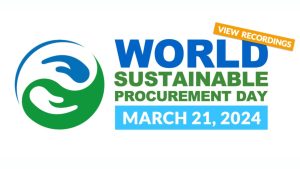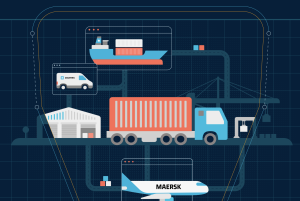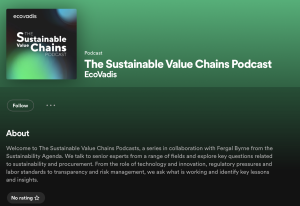 Developing sustainable procurement policies is an important and worthy goal for any organisation or business. It is not just about buying the eco-friendliest products out there – sustainable procurement means taking the social and economic influences of purchased goods and services into account, along with their environmental footprint.
Developing sustainable procurement policies is an important and worthy goal for any organisation or business. It is not just about buying the eco-friendliest products out there – sustainable procurement means taking the social and economic influences of purchased goods and services into account, along with their environmental footprint.
Through sustainable procurement, your organisation can build resilience and become future-proofed through increased efficiency and effectiveness. Policies will benefit your bottom line and help you to manage supply chain risks, so it is a win for your business as well as for the planet and the people on it.
So, where do you start? And, more importantly, how can policymakers know what sustainable or ‘green’ procurement even means?
When you don’t have experience with sustainable purchasing or an understanding of the complex issues surrounding it, it can be challenging to know what sort of criteria to include in a sustainable procurement policy document or which products and services meet all of those criteria.
Therefore, we have put together this handy guide to help get you started…
1. Decide what matters most to your organisation
When writing policies, keep your organisation’s top sustainability priorities in mind, ensuring that these are clearly-defined and aligned with your organisation’s core values. Sometimes it may not be feasible to try to meet every possible sustainability goal.
Some businesses may place a higher value on lowering their environmental impact, while others may be drawn to labour practices or human rights issues. Ultimately, every policy should include a requirement for continual improvement towards meeting sustainability goals.
2. Set your core procurement criteria
Once priorities have been set, it is time to identify the potential environmental, health and social impacts of products and services as well as their associated risks. This is where other standards organisations can help.
The new ISO 20400 Sustainable Procurement Standard, for instance, was published mid-2017. This standard provides a thorough understanding of the sustainability considerations that must be kept in mind across all areas of procurement, from policy to organisation to processes, and provides guidance on how these can be implemented on a practical level.
3. Choose goods and services that meet these criteria
Independent certification is the only way to ensure that you are genuinely buying sustainable products, thanks to built-in auditing and assurance processes.
Key qualities to look out for in an ecolabel are:
– Independence
– Transparency and consistency in standards
– Third-party accreditation and verification processes (where the verification and licencing agencies are also independent of one another)
Ecolabels, such as Good Environmental Choice Australia (GECA), can fit perfectly into sustainable procurement policies, considering that certifying bodies have most likely done all the work for you in determining whether a product meets certain sustainability criteria. GECA’s standards documents, for example, contain detailed criteria for environmental, health and social performance as well as include criteria that ensure products are fit-for-purpose.
Another useful resource is the Global Ecolabelling Network (GEN), which is a non-profit association of leading ecolabelling organisations spread across 57 countries and territories. GECA is proud to be the only Australian member of GEN. With so many certified products available, there has never been a better time for organisations and businesses to start creating sustainable procurement policies.
4. Keep records and communicate with your stakeholders
Finally, ensure that you keep accurate records of all purchasing decisions for future reference. These are important for measuring progress against your sustainable purchasing goals, managing risk and informing any ongoing development of your policy document. It is also important to communicate your purchasing decisions to stakeholders, establishing your organisation’s reputation for responsible procurement and building trust during the course of the process.


























